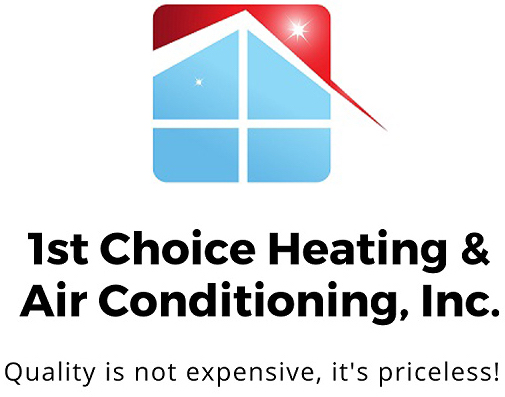Buying your first home is an exhilarating experience. You’re probably trying to keep track of numerous details to ensure you’re making the right choice. We believe that understanding your future HVAC system is essential. The property’s HVAC system represents a significant investment and potential source of long-term costs, illustrating why a detailed inspection should be a top priority for first-time homebuyers.
In this guide, we’ll outline seven tips for discovering all there is to know about a home’s heating and cooling setup. And if you want a more in-depth opinion from the experts, feel free to call 1st Choice Heating & Air Conditioning. Our staff can help you compare your options with industry insights that are second to none.
1. What HVAC System Are You Working With?
Start by clarifying what specific HVAC system the home features. Furnaces tend to last longer compared to air conditioners, and relatively new types of HVAC equipment like heat pumps feature average life spans longer than ever. Getting the details on the make and specific model provides a much better sense of how much routine maintenance it might need.
2. How Long Ago Was the System Installed?
Another good idea is to find out how old the HVAC system is when you’re looking at a new home. For the most part, HVAC systems should survive for around 10-12 years. Learning its approximate installation date helps you prepare for any needed servicing or considerations if it might shut down for good. Older systems are at a higher risk of problems, so budgeting for a replacement unit could be necessary sooner than you thought.
3. Does the System Have a Warranty?
Check if the HVAC system is still under warranty. If it is, you’ll appreciate how it can lower maintenance expenses. HVAC warranties often cover parts and labor, but the details in each policy will vary. Make sure you go over any terms you don’t recognize to ensure you understand your coverage and any possible out-of-pocket costs.
4. When Was the Last Time It Received Maintenance?
Don’t forget to check the maintenance history of the HVAC system, if such information is available. This service history can demonstrate if the system constantly broke down or how much upkeep was provided. Ask about records for key tasks such as changing the air filter, which can indicate it received regularly scheduled tune-ups.
5. Do You Know Its Energy Efficiency Ratings?
Purchasing a home with a heating and cooling system with high energy efficiency isn’t just smart; it leads to more manageable utility bills and a smaller environmental impact. Try and find the seasonal energy efficiency ratio (SEER) ratings for air conditioning along with the annual fuel utilization efficiency (AFUE) for furnaces. Higher SEER ratings mean better cooling across the entire season, while high AFUE ratings illustrate that the fuel is efficiently converted into useable heat.
6. Can You Spot Trouble During Your Inspection?
Even without experience in HVAC systems, it’s still a good idea to examine the HVAC system on your own. Watch closely for potential issues that haven’t been mentioned by the seller. This includes strange noises, unequal airflow and attempts to cover up any obvious damage.
7. Have You Sought Out Expert Advice?
If you’re unsure about the current state of the HVAC system, it’s wise to get a professional opinion from experienced HVAC professionals. They are skilled at identifying things you might not, like refrigerant leaks, damage to the wiring or damaged ductwork.
A Consultation with 1st Choice Heating & Air Conditioning Simplifies Your Home-Buying Journey
Selecting your first home is meant to be a joyful event, and 1st Choice Heating & Air Conditioning will do everything possible to ensure that doesn’t change. Reach out with us at 949-204-0859. We can discuss how our HVAC services give you peace of mind, giving you what you need to step into your new home with confidence.
